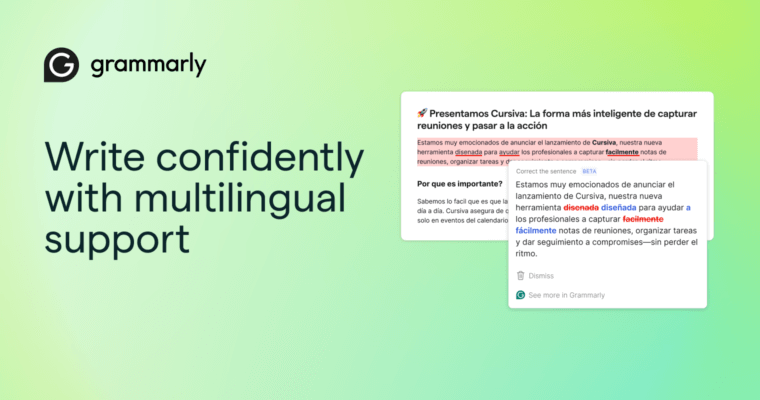
When speaking, many of us stall with filler words and phrases like “um,” “you know,” and “basically,” or we lose our train of thought while we’re on our way to a good point.
So too in writing—filler phrases like “needless to say” or “essentially” can clog up the page, while our rambling thoughts can turn a linear argument into a sea of three-line sentences and half-page paragraphs.
The most effective writing is concise—free of filler words, with just the right tone to get your point across.
Grammarly’s clarity suggestions are built for taming these tendencies. Here’s how they can help make your writing concise and clear.
Cut unnecessary words and phrases
Filling your sentences with unnecessary fluff is common when you’re writing a first draft. But if you’re writing a quick but important email or working on a deadline, you may not always have time to trim the fat.
Grammarly’s conciseness suggestions help identify redundant, overused, and unnecessary phrases that may get in the way of what you’re trying to express—words and phrases like “for what it’s worth,” “actually,” and “really.”

Sometimes, you may have written something two different ways without realizing it. This could be writing two verbs when one would do, or asking someone to meet you at “3 p.m. in the afternoon” when “3 p.m.” would suffice. Grammarly’s conciseness suggestions will help you find and get rid of these, making your writing that much cleaner.
>>READ MORE: How to Use Grammarly to Learn From Your Mistakes
Identify passive voice
Passive voice has its place—usually in formal or legal documents. But in many other styles of writing, passive voice is still frowned upon. Grammarly’s clarity suggestions identify passive voice for you, so you can judge for yourself where it’s appropriate and where it needs rewording.
Rephrase wordiness
It’s OK to overwrite when you’re just trying to get words on the page. But often a second look can reveal that you may need two words where you were using five or six.
Grammarly’s conciseness suggestions find these pesky phrases, like “for the purposes of” or “a number of,” and offer shorter alternatives, like “to,” and “several.” That way, your reader can spend more time digesting your message and less time wading through extra words.
Suggest a rewrite
There’s nothing wrong with writing long sentences, especially if they’re well constructed and lead to a point. After all, no one wants to read a bunch of clipped, four-word sentences over and over again. It’s easy to lose the point, however, when you’re three commas and two em-dashes deep.
>>READ MORE: How to Use Grammarly’s Performance Reports
Grammarly’s readability suggestions, as well as the Grammarly Editor’s overall readability score, can help keep your sentences grounded. Readability suggestions pinpoint where a sentence may benefit from being split into two or simplified. Your document’s readability score measures your word length and sentence length against other Grammarly users and tells you how easy your document is to understand.
With Grammarly’s conciseness, clarity, and readability suggestions, you can convey the message you want in a way that’s efficient, effective, and clear.






